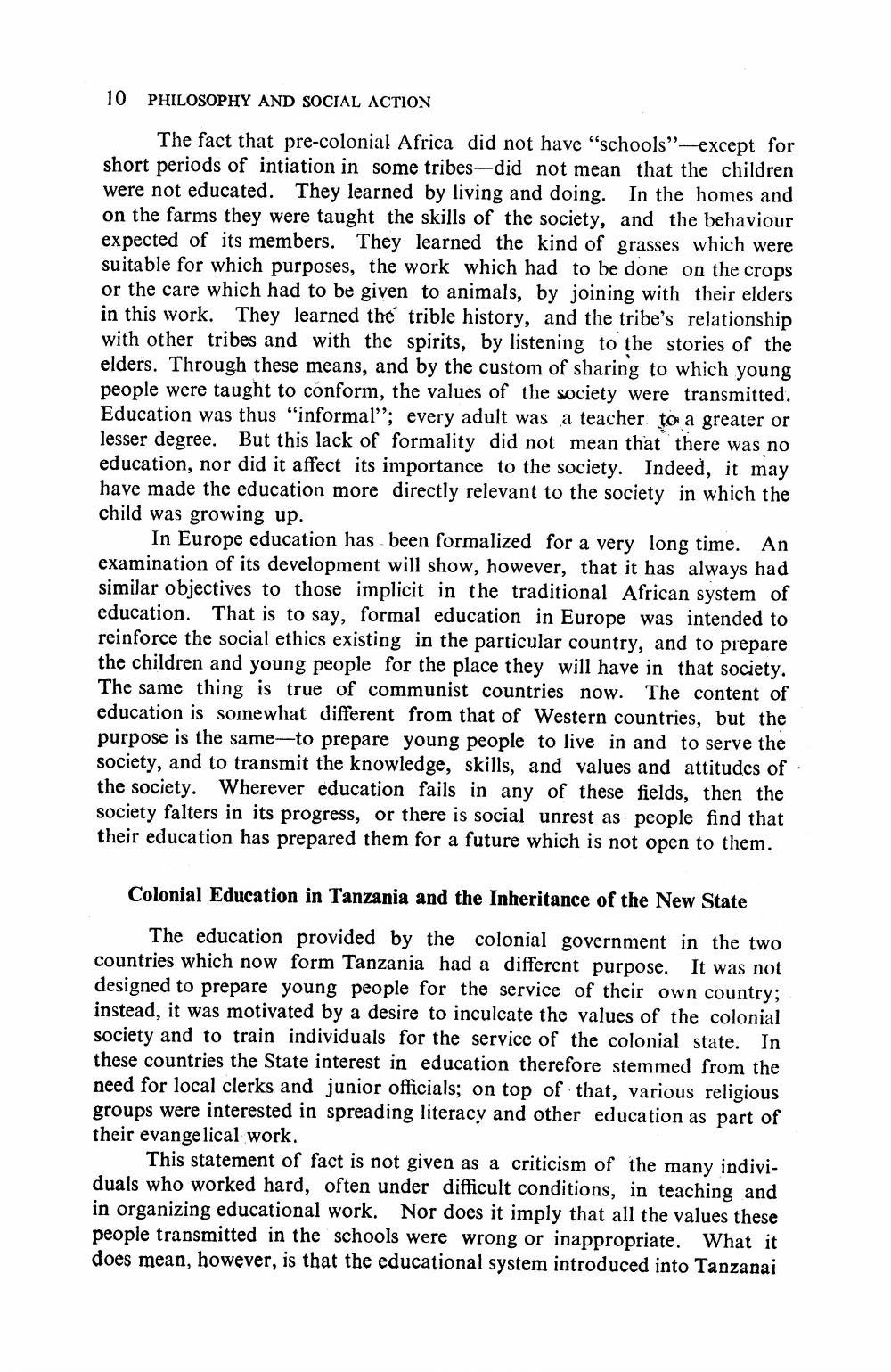________________
10
PHILOSOPHY AND SOCIAL ACTION
The fact that pre-colonial Africa did not have "schools"-except for short periods of intiation in some tribes--did not mean that the children were not educated. They learned by living and doing. In the homes and on the farms they were taught the skills of the society, and the behaviour expected of its members. They learned the kind of grasses which were suitable for which purposes, the work which had to be done on the crops or the care which had to be given to animals, by joining with their elders in this work. They learned the trible history, and the tribe's relationship with other tribes and with the spirits, by listening to the stories of the elders. Through these means, and by the custom of sharing to which young people were taught to conform, the values of the society were transmitted. Education was thus "informal"; every adult was a teacher to a greater or lesser degree. But this lack of formality did not mean that there was no education, nor did it affect its importance to the society. Indeed, it may have made the education more directly relevant to the society in which the child was growing up.
In Europe education has been formalized for a very long time. An examination of its development will show, however, that it has always had similar objectives to those implicit in the traditional African system of education. That is to say, formal education in Europe was intended to reinforce the social ethics existing in the particular country, and to prepare the children and young people for the place they will have in that society. The same thing is true of communist countries now. The content of education is somewhat different from that of Western countries, but the purpose is the same—to prepare young people to live in and to serve the society, and to transmit the knowledge, skills, and values and attitudes of the society. Wherever education fails in any of these fields, then the society falters in its progress, or there is social unrest as people find that their education has prepared them for a future which is not open to them.
Colonial Education in Tanzania and the Inheritance of the New State
The education provided by the colonial government in the two countries which now form Tanzania had a different purpose. It was not designed to prepare young people for the service of their own country; instead, it was motivated by a desire to inculcate the values of the colonial society and to train individuals for the service of the colonial state. In these countries the State interest in education therefore stemmed from the need for local clerks and junior officials; on top of that, various religious groups were interested in spreading literacy and other education as part of their evangelical work.
This statement of fact is not given as a criticism of the many individuals who worked hard, often under difficult conditions, in teaching and in organizing educational work. Nor does it imply that all the values these people transmitted in the schools were wrong or inappropriate. What it does mean, however, is that the educational system introduced into Tanzanai




